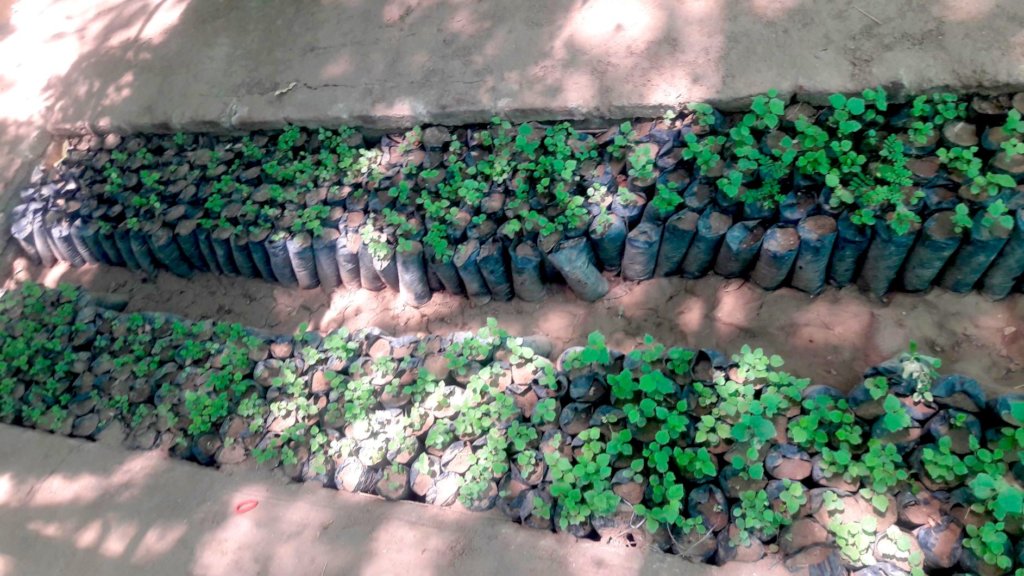By Lily Campbell | Fundraiser and Outreach Coordinator
Darfur is at the forefront of climate change, experiencing extreme heat and drought, followed by overwhelming floods causing devastations. It is in the Sahel region of Africa which is particularly vulnerable to climate change and according to the UN, the temperature in this region is expected to rise by between 3C and 5C very soon. These warmer temperatures lead to a degradation of the land and an increase in desertification resulting in the desert encroaching into agricultural land. Climate change also impacts the length and timings of seasons, therefore, having a negative effect on crop growth, leading to food insecurity in the area.
In 2007 our CEO and founder Patricia Parker OBE started the project of resuscitating the tree nursery in the village El Fasher and was the first to start funding the planting of trees again in Darfur. The aim after that first success was to create a community forest in each of the Kids for Kids villages to counteract the effects of climate change.
We have been planting seedlings of various trees that are drought-resistant, provide shade and all have bi-products which are of benefit to the people who often have to walk miles for the water they need for the first two years before they have tap roots established enough to reach underground water. Oil from the Neem tree, the leaves, fruit and seeds and bark from the Baobab and, most exciting of all, the seeds of the Moringa tree can be used to purify water - and even citrus fruit from trees that we provide for people's huts.
One of the most sustainable ways to prevent desertification and land degradation is to stabilise the soil. Planting trees increases the soil moisture in the area and stabilises the soil. It has also been scientifically proven that planting trees helps to form a microclimate in the immediate vicinity of the trees by reducing the air temperature. Lowering the temperature of the soil means that more moisture remains within the ground creating a better and more fertile environment for growing crops, the basis of people’s income and diet in the villages of Darfur. Once established the trees can be underplanted, providing vegetables often in villages that have been unable to support them before.
The people in Darfur are subsistence farmers meaning that caring for the land is of paramount importance as they eat what they grow. We are showing that focusing on alleviating the effects of climate change, environmental degradation, and desert encroachment protects these farmers and their communities from current and future vulnerabilities. In the vast IDP camps the green canopy above the huts transforms the environment. People were initially afraid that planting trees would attract birds that would eat their crops. Now the people can eat birds eggs when conditions are at their worst.
In Darfur, a tree provides precious shade for people and animals. With our help, communities are now planting ‘green belts’ or community forests, around their villages to hold back the desert and provide precious fruit for the hungry months. Some have even built on the concept and have a cash crop, Gum Arabic, a classic example of diversification to improve their chances in hard times.
A community forest is just the start of our work tackling the effects of climate in the remote villages of Darfur – we are teaching children the importance of the forests, so they grow up to nurture the returning wildlife and help the trees to grow and expand. This will be the legacy of Kids for Kids and we hope that the children of the future will continue in the guardianship of the trees in their community.
Project reports on GlobalGiving are posted directly to globalgiving.org by Project Leaders as they are completed, generally every 3-4 months. To protect the integrity of these documents, GlobalGiving does not alter them; therefore you may find some language or formatting issues.
If you donate to this project or have donated to this project, you can recieve an email when this project posts a report. You can also subscribe for reports without donating.
Support this important cause by creating a personalized fundraising page.
Start a Fundraiser